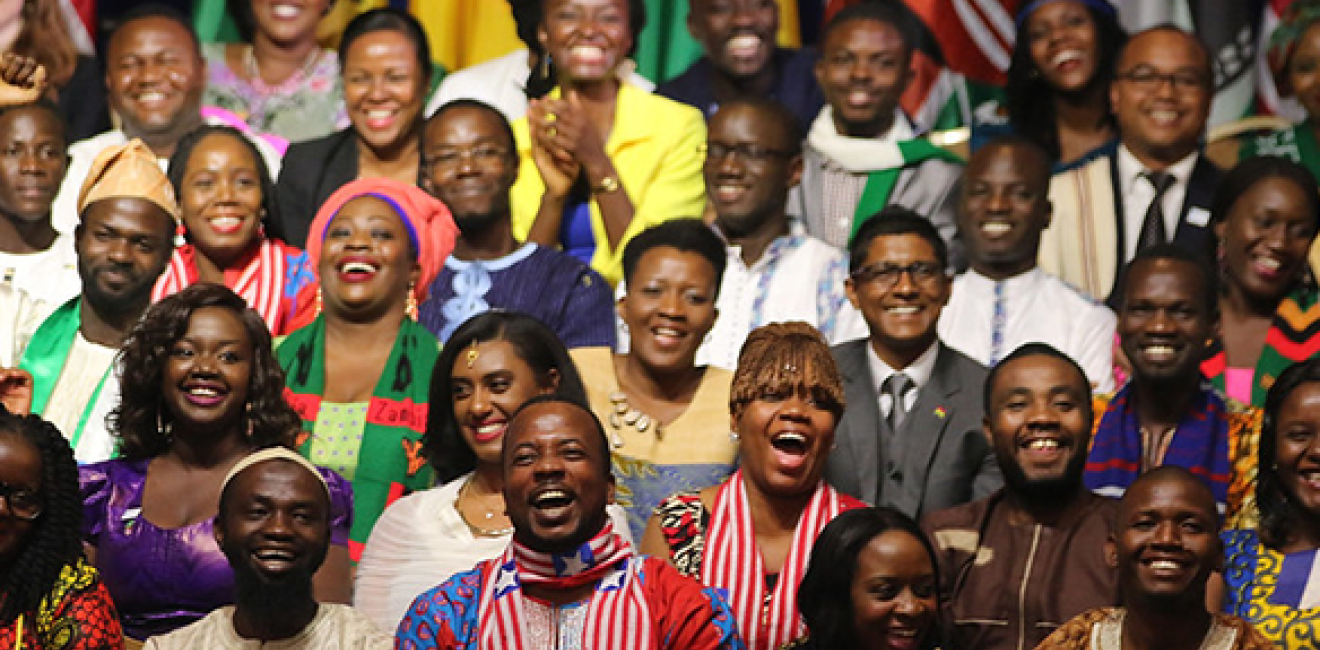
A blog of the Africa Program
Assistant Secretary of State for African Affairs, Ambassador Tibor Nagy, participated in a March 3 discussion sponsored by the Wilson Center's Africa Program regarding African policy during the current United States administration. Referencing the previous Wilson Center event at which he spoke in 2018, he discussed the priorities he had laid out when he took on his position, the first of which was to harness the potential of youth populations throughout Africa. Ambassador Nagy's focus on engaging youth coincides with the end of a decade-long initiative called the Decade of Youth Development in Africa, an African Union (AU) framework that aimed to create more youth development plans and boost resource allocation for youth-related programs. In the face of projections that "by 2030, 375 million young people in Africa will reach working age," the Decade of Youth Development in Africa has been a necessary step for pushing African governments to respond to their growing youth populations.
Key Takeaways from the Decade of Youth Development in Africa
On a policy implementation level, it is clear that most countries in Africa have prioritized youth engagement in order to meet the objectives of the aforementioned initiative. African governments have incorporated youth engagement in various ways, with most implementing education and training programs. For example, Ghana has created empowerment programs meant to provide college graduates with useful skills for entering the job force, while Mauritius has adopted a plan that encourages training and education for young people. Yet despite the multitude of actions taken to engage youth, the past decade has seen inconsistent improvement when it comes to Africa's youth unemployment, which is as high as 25% in regions like North Africa. While steps taken by African governments tackle the immediate needs of employment for young adults, issues such as education, under-employment, and youth leadership pose challenges for creating concrete change.
Education: Most African countries have included responses to the issue of unemployment within their youth engagement plans, and these actions often focus on education and training. When paired with other initiatives, education is necessary for preparing young adults for the workforce. For instance, a large part of the unemployment crisis in South Africa stemmed from the reality that high school and college graduates did not have the proper skills demanded by the labor market. As a result, the National Treasury committed $21.8 billion to improving educational infrastructure. Although ensuring young adults have proper education and training was a necessary step to take, it only provided a solution to the supply side of the problem without boosting the demand for employees. As a result, college graduates in many African countries are leaving schools with the capability of filling high-level, white-collar jobs, but not enough of these job types exist to employ them all. In Nigeria, it is common to find college graduates doing janitorial work, factory work, or other low-income jobs. In short, despite increased access to higher education, young adults in many African countries cannot find employment in their field.
Under-Employment: From 2008-2018, youth unemployment rates as a whole declined from 11.6% to 11.2% across the continent, signaling slow yet steady improvement. However, reports evaluating the current state of youth unemployment in Africa have pointed out how these statistics do not include those who are "under-employed." Many African young adults have jobs that provide poor job security and low pay, especially in countries where informal economies are prevalent. In Senegal, for example, 70% of the youth population is either self-employed or working for their family, demonstrating the risk of low wages and job insecurity. As a result, even where government programs have positively impacted the employment rate over the last ten years, the issue of under-employment creates a larger challenge that is not reflected in employment statistics.
Youth Leadership: Another challenge comes from the disparity between the large number of young adults who are affected by unemployment and the fact that African national leaders who have the power to enact change are disproportionately from older generations. At the international level, there has been a push to include young people in important leadership programs, including the United Nations Population Fund Global Youth Advisory Council and the U.S.-created Young African Leaders Initiative, the latter of which Ambassador Nagy highlighted in his March 3 remarks. However, this has not directly translated into more representation in African government bodies, as there are still very few Africans under the age of 35 who have risen to public leadership roles. Therefore, even though youth leadership programs in Africa have shown promise in addressing widespread problems like unemployment, this has yet to translate into tangible change at the decision-making level.
Higher education and youth leadership programs have successfully equipped African young adults for the workforce, but these approaches alone do not address the deeper economic need for more jobs. Acknowledging that job creation is a complex and multidimensional challenge for any government, there are a few promising economic sectors in Africa that could provide more job opportunities for youth if African states can utilize them. Among these are tourism and horticulture, which have emerged as strengths for many of the continent's economies, particularly in East Africa. Tangentially, education and training programs should refocus efforts toward more vocational training that aligns with the types of jobs available for young adults. African governments, therefore, should focus on developing skills for youth in rising industries like tourism and horticulture, in addition to technological, mechanical, and other skills needed for more traditional sectors.
Conclusion
The key takeaway from the last decade of youth engagement in Africa is that skill-building activities cannot succeed in a vacuum without simultaneous job creation. However, skills development can complement job creation within the right economic environment. While many African countries have clearly prioritized youth engagement and taken the issue of youth unemployment seriously, they will have to go beyond bolstering education and encouraging youth leadership if they are to successfully reap the potential advantages of the continent's demographic youth boom.
Emily Michels is a staff intern with the Wilson Center Africa Program and a graduating senior at American University.
Photo Credit: Participants at the 2016 YALI Summit, August 3, 2016. State Department Photo by Tim Brown/Flickr [Public Domain].
The opinions expressed on this blog are solely those of the authors. They do not reflect the views of the Wilson Center or those of Carnegie Corporation of New York. The Wilson Center's Africa Program provides a safe space for various perspectives to be shared and discussed on critical issues of importance to both Africa and the United States.
Author


Africa Program
The Africa Program works to address the most critical issues facing Africa and US-Africa relations, build mutually beneficial US-Africa relations, and enhance knowledge and understanding about Africa in the United States. The Program achieves its mission through in-depth research and analyses, public discussion, working groups, and briefings that bring together policymakers, practitioners, and subject matter experts to analyze and offer practical options for tackling key challenges in Africa and in US-Africa relations. Read more

Explore More in Africa Up Close
Browse Africa Up Close
The Innovative Landscape of African Sovereign Wealth Funds



